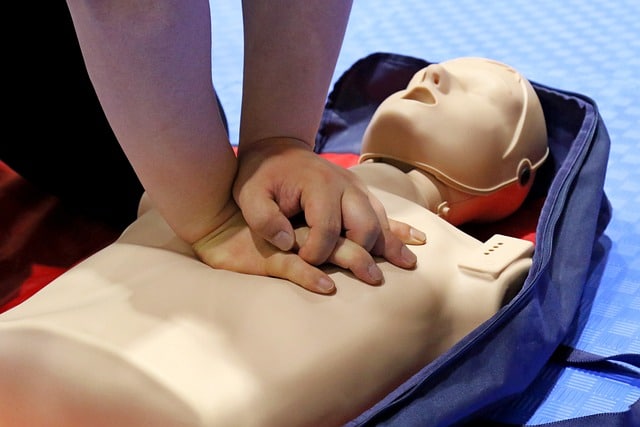Hospital in-patients from lower socioeconomic backgrounds are less likely to survive cardiac arrest for not receiving prompt cardiopulmonary resuscitation (CPR) after their hearts stop beating and less likely to survive than patients from higher socioeconomic backgrounds.
These are the findings of a new study on over 24,000 patients in Sweden, published in the European Heart Journal on Dec 20, 2020. It is the first European study to investigate this and the first to show that socioeconomic status (SES), rather than other factors, is essential.
In the current study, Professor Jens Agerström, from Linnaeus University in Kalmar and Växjö, Sweden, and his Swedish colleagues, found that patients in hospitals with higher incomes and education were significantly less likely to experience a delay in receiving CPR after a cardiac arrest and significantly more likely to survive until discharge from hospital and for 30 days after the cardiac arrest.
“The study investigated several outcomes but, for example, if we look at survival for 30 days after the cardiac arrest, approximately 280 people in 1000 from a low socioeconomic background will survive; however, for patients from a high socioeconomic background, approximately 320 people may survive to 30 days.”
The researchers found that patients with higher SES were significantly more likely to have their heart rhythm monitored before they suffered a cardiac arrest, and this was associated with less delay before CPR. Also, a shorter duration of CPR increased survival immediately afterward and 30 days later. The result could partially explain the differences in survival.
Prof. Agerström said: “Patients from high socioeconomic backgrounds were more likely to be monitored even if their health status was better than patients from low socioeconomic backgrounds.
This observation suggests that there may be a bias in the way treatment is provided. Although doctors decide whether or not to monitor heart rhythm, we cannot rule out that patients from high socioeconomic backgrounds may request more monitoring.
Such bias, where patients are treated differently due to their SES, may stem from prejudiced attitudes among hospital staff.”—the researchers write in their paper.
The researchers analyzed data from the Swedish National Registry of Cardiopulmonary Resuscitation for 24,217 cardiac arrests that occurred in patients aged 40 or over in Swedish hospitals between 2005 and 2018.
They obtained socioeconomic data on patients from a second database and used the highest level of education and annual income as indicators of SES.
Finally, they adjusted their results to account for factors that could affect them, such as age, gender, ethnicity, other medical conditions, the hospital where they were treated, heart rhythm, and the cause of the cardiac arrest.

Prof. Agerström said: “The current study only examined cases where resuscitation was started because these cases appear in the Swedish National Registry of CPR. It’s possible that SES disparities are more pronounced when the medical staff decides whether or not to initiate CPR in the first place.”
“Because it has been shown that people with low SES face prejudiced attitudes in many societies and cultures, it is possible that there are SES disparities in in-hospital cardiac arrest care and outcome in other European countries too. This, of course, rests on the assumption that prejudice plays an important role in the observed differences,” said Prof. Agerström.
He said he was prompted to conduct the research because of his experiences. “After studying discrimination in the labor market for many years with Dr. Magnus Carlsson, one of my co-authors, we thought that a natural next step would be to look at the health care system and possible treatment discrimination, which is much less researched.
My own medical visits also played a role, as I got the impression that the staff often became more thorough after they had asked me about my profession.”















